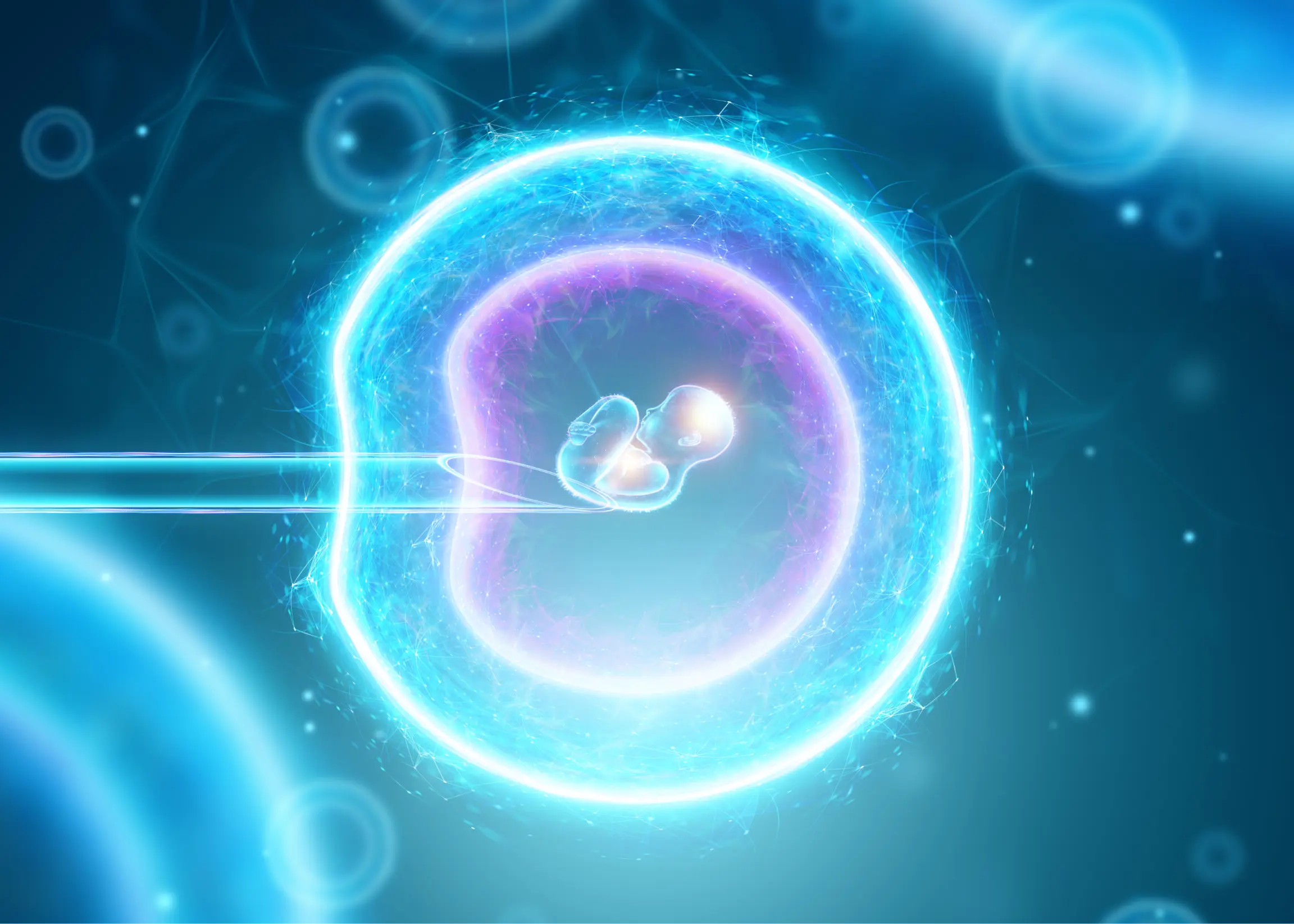Almost 17% of the total adult population faces infertility issues, that is 1 in every 6 adults. Studies show that infertility is a rising health issue, affecting couples who dream of parenthood from conception. But thanks to new medical technologies and procedures, natural conception is still a hopeful choice for couples with infertility issues. These include assisted reproductive technologies (ART), which help couples conceive when they have infertility issues. There are various ART procedures that are used in fertility treatments, including ICSI, IVF, and IUI. So, what exactly are these procedures, and which procedure should a couple choose in case they have infertility issues? Keep reading to find out.
What is IVF
IVF (In Vitro Fertilization) is taken from “in vitro”, meaning “outside the body” or “in glass”. This is because the IVF procedure includes fertilization of the egg by the sperm outside the body, in a laboratory setting.
Procedure Overview:
Stimulation of the ovaries starts with hormonal medication, which helps in producing more eggs in the ovaries. These eggs are then retrieved by the infertility specialist and are stored in a lab. The sperm is also collected from the male partner and is mixed with the eggs to help in fertilization. For a successful fertilization, only the eggs and sperm that have good quality, like the shape, motility, etc., are selected to increase the chances of fertilization. After this step, the embryo grows for a few days and is placed into the uterus of the female partner.
What is ICSI
Intracytoplasmic Sperm Injection (ICSI), which is another ART procedure, is just like IVF but has a very unique approach.
Procedure Overview:
This infertility treatment includes similar procedures in IVF, like stimulating the ovaries to produce more eggs with hormonal medication, retrieval of eggs, and collecting the sperm. The difference in this procedure is that only a single high quality sperm is selected to fertilize the egg by injecting it directly into the egg. Then the embryos are grown after fertilization, they are transferred to the woman’s uterus and develop into a fetus.
What is IUI
IUI (Intrauterine Insemination) is an infertility treatment where the sperm is directly placed into the uterus to increase the chances of conception.
Procedure Overview:
Intrauterine Insemination (IUI) is also called artificial insemination because the procedure includes collecting the sperm from the male partner and preparing it before placing it inside the uterus directly at the time of ovulation. This ART procedure is effective because the sperm can reach the eggs easily when they are released by the ovaries
Differences Between IVF vs. ICSI vs. IUI
|
Difference
|
IUI
|
IVF
|
ICSI
|
|---|---|---|---|
|
Fertilization Happens In
|
Inside the female partner’s uterus
|
In a lab dish (Autonomously)
|
In a lab dish (With direct injection of sperm for fertilization)
|
|
Invasiveness
|
No procedure required
|
Requires minor procedure for egg retrieval
|
Requires minor procedure for egg retrieval
|
|
Egg Stimulation
|
In rare cases
|
Requires stimulation with high dose of hormone injections
|
Requires stimulation with high dose of hormone injections |
|
Sperm Quality |
Healthy sperm
|
Healthy or moderately healthy sperm
|
Needs at least 1 healthy sperm cell
|
|
Success Rate |
10-20%
|
30-40%
|
70% or more
|
IVF vs ICSI vs IUI: Which Procedure Should I Choose
Choose IUI If:
- The male partner’s sperm has less than the average sperm count
- Male factor infertility is the main reason for the low success rate of conception
- If the sperm has any abnormalities, either in shape or movement, leading to infertility
- There are some issues like mild endometriosis, or if the male partner has ejaculation issues or erectile dysfunction
- The couple wants to use donor sperm for conception
- The couple is looking for less invasive infertility treatments
- The female partner is under 35 years and has been trying to get pregnant for more than 1 year.
Choose IVF If:
- There are known fertility issues, like low sperm count, PCOS condition, blocked fallopian tubes, endometriosis, etc.
- There is a concern about genetic disorders, and the couple wants to opt for preimplantation genetic testing to screen for any such disorders.
- The female partner is over 35 years old, and there has been no success despite trying to conceive for close to 2 years.
- Embryo freezing is considered by the couple for future use.
Choose ICSI If
- The sperm has poor motility, shape, or less than the average sperm count
- The sperm has to be surgically retrieved from the male partner in case of some issues.
- The couple wants to increase the chances of fertilization of the egg
- There are concerns over genetic conditions and the couple considers choosing PGT
Conclusion
All in all, there are various reasons to choose between IVF, ICSI, and IUI. By understanding each process, the treatment requirements, and personal preferences, couples can choose the right ART procedure for their infertility issues. It is always advisable for a couple to consult a fertility specialist to get recommended the best procedure that suits them best.
Frequently Asked Questions
1. Is IVF better than IUI?
When considering the better treatment between IVF and IUI, the success rate plays an important role, with IVF having a higher rate of success.
2. For male infertility, is there only ICSI treatment?
For male infertility, it is generally advised to choose ICSI treatment, but there are many other options that are used to treat male infertility.
3. Is there a risk for IVF, IUI, and ICSI procedures?
While these ART procedures are considered safe infertility treatments, there are minor risks that might occur in rare cases, so it is important to make informed decisions.




